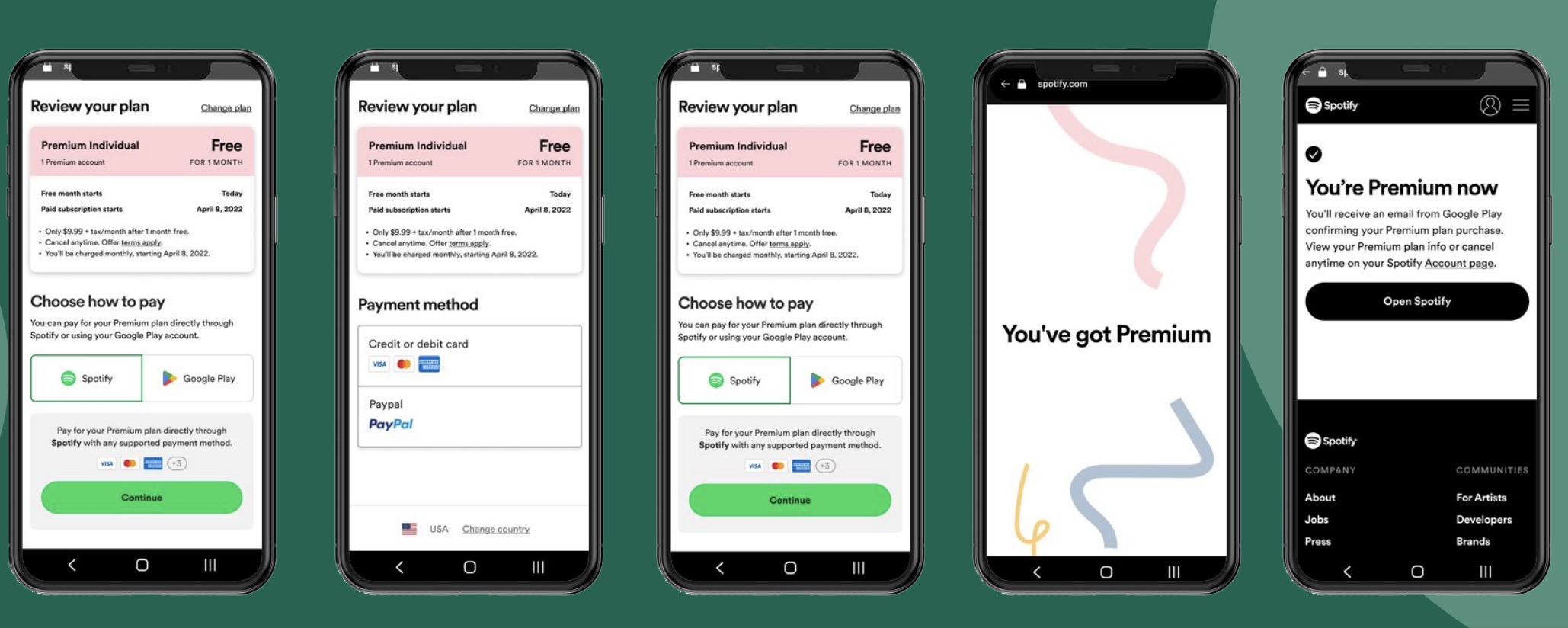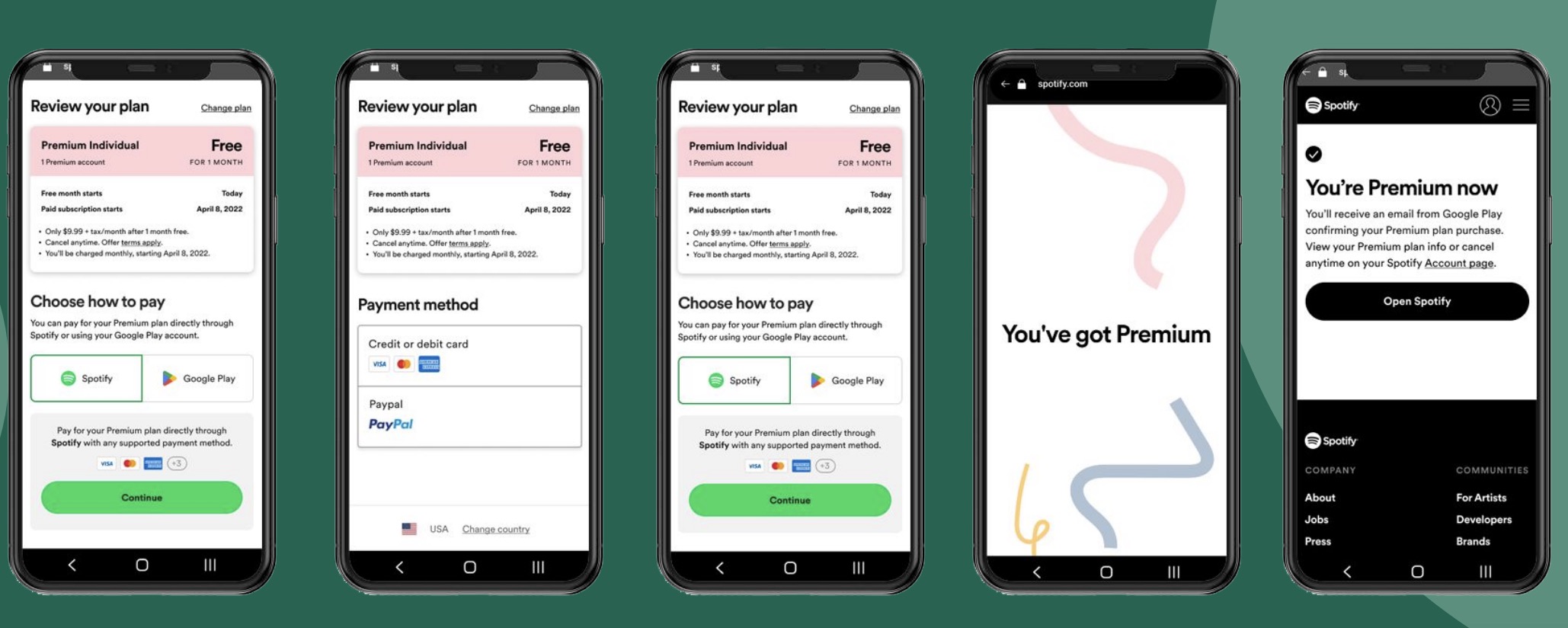
Spotify’s third-party billing option has now reached over 140 global markets
In its fourth-quarter earnings, Spotify announced today its User Choice Billing program has now expanded to more than 140 markets worldwide, allowing the streaming music service to reduce the commissions it pays to Google over Play Store purchases associated with its Android app. The User Choice Billing pilot program gives Android users the option to pay an app developer directly. It had been introduced last spring, with Spotify planned as an initial tester. But neither company had shared an update on the program’s progress until this past November when they announced Spotify would then begin to roll out its tests in select markets.
At the time, Spotify said the program would become available in only a few markets to start and would roll later out to others in the “coming weeks.” It did not share which markets would see the third-party billing option or when it expected the choice to reach its global Android app user base.
Today, the company confirmed it’s made solid progress on the program’s deployment. As part of its earnings announcement, where the company also beat on user growth targets with 205 million paid subscribers, it shared that its November deployment of User Choice Billing had then become available to users in “10+ markets.” Over the past several months, Spotify said it’s expanded the option to now more than 140 markets around the world.
However, Spotify has not yet published a detailed list of countries where the program is offered but told TechCrunch it anticipates implementing the option in “every market” where it offers Spotify Premium today and where Google Play Billing is available. Currently, Spotify Premium subscribers can be found across 184 global markets, according to the company’s website.

Image Credits: Spotify
It’s not surprising that Google picked Spotify as a debut tester of its new billing offering, given the streaming music service has long been a fierce app store critic, sharing its complaints over the required commissions with the U.S. Department of Justice and EU regulators. If an outspoken voice like Spotify could be placated by a reduced commission on in-app purchases, Google hopes it could mitigate concerns over its alleged abuses of market power now being investigated.
In March, Google introduced the third-party billing option to Android app developers, as looming threats of antitrust litigation and increased regulation grew nearer. Already, the tech giant had been forced to support alternative billing systems in South Korea, with the passing of a new law, and being sued by top app makers, including Fortnite’s Epic Games, over antitrust issues. However, the User Choice Billing option didn’t offer much in the way of savings for app developers, as Google only reduced the required commissions on app purchases and in-app payments by 4%.
This past November, Google said it was opening up the User Choice Billing pilot further to new markets, including the U.S., Brazil and South Africa, and invited other developers to participate. Dating app Bumble then joined Spotify as one of the early adopters.
Developers who participate in the program have to follow certain UX guidelines Google sets, which detail how to implement the feature in their apps. These guidelines currently require developers to display an information screen and a separate billing choice screen. The information screen only has to be shown to each user the first time they initiate a purchase, but the billing choice screen must be shown before every purchase.
While the general terms offer a 4% reduction on the commissions paid to Google when third-party billing is used, Spotify wouldn’t comment on its confidential deal with Google, only noting it meets the company’s “standards of fairness.” It’s unclear if the streamer has been offered more favorable terms as an early tester.
Spotify’s agreement with Google could potentially provide a boost in subscription revenues at a time when the streamer is facing an increased push from investors to increase its margins and make the service profitable. As Spotify chased investments in areas like adtech, podcasts, audiobooks and more over prior years, its losses widened last year, leading its market cap to decline by over 60%. In a note published to Spotify’s website this month, as the company announced layoffs impacting 600 people, CEO Daniel Ek admitted the situation was the result of being “too ambitious in investing ahead of our revenue growth.”
The company’s solid progress on user growth in the fourth quarter saw its shares pop after announcing results earlier this morning. In addition to its 205 million paid subscribers, up 14% year-over-year, it also announced total users were up 20% year-over-year to 489 million. Revenue came in at €3.17 billion, just ahead of estimates of €3.16 billion, but Spotify’s loss per share was €1.40 ($1.52), larger than the expected loss of €1.27.

